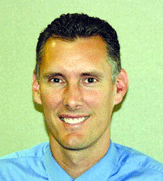Some interesting tidbits on cancer – perhaps some of my readers have been privy to this information via e-mail, but it was of great interest to me so I thought I would share it. John Hopkins School of Medicine, long-recognized as one of the leading medical centers in the world has released information regarding recent trends in cancer "thinking". It is generally accepted that everyone has cancer cells in the body, but unfortunately our tests are not sensitive enough to find and diagnose them until the cell counts have reached into the millions. Cancer cells may occur six to ten times in a patient’s life. A strong immune system may help destroy cancerous cells and prevent multiplication of them as well. A diagnosis of cancer may represent an underlying nutritional deficiency that could be related to, or worsened by, genetic, environmental, or lifestyle factors. An effective method at battling cancer may be to change the diet or take nutritional supplements that enhance the immune system. Chemotherapy may destroy cancerous cells but it is non-specific and may destroy healthy tissue as well, namely cells of the bone marrow or gastrointestinal tract. Chemotherapy and radiation will reduce tumor size, but prolonged use may not result in any more tumor destruction. Chemotherapy may compromise the immune system and expose patients to various types of infections and complications. Therapy can result in mutation of cancer cells that allow them to become more resistant to treatment. Perhaps a better way to fight cancer is to starve the cancer cells by not feeding it those foods that it may need to multiply. A prime example is that of dioxins. Dioxin chemicals are known carcinogens and are directly responsible for breast cancer (among others). Freezing plastic water bottles may release dioxins as may heating food in the microwave using plastic wraps or plastic containers. It is safer to use tempered glass or Corning ware. The combination of heat, fatty food and plastic causes release of the dioxin from the plastics which then may ultimately infiltrate the cells of the body. Some may view this as paranoia, but given the alarming increase in cancer rates, one can’t be too sure. Next week, I will further discuss the topic including lifestyle changes that John Hopkins has proposed as a first line defense against cancer. I am a firm believer that our lifestyle and environmental exposures (some avoidable, some not), are what drives the development of cancer. Genetics play a role, but it may in fact be driven by other factors as well.
Do you have any medical questions or concerns that you would like addressed? You can contact Dr. Spence by email at scripna@hotmail.com or by mailing your question to Daily Dose, P.O BOX 6107, Marianna, FL 32446.
Subscribe to:
Post Comments (Atom)

No comments:
Post a Comment